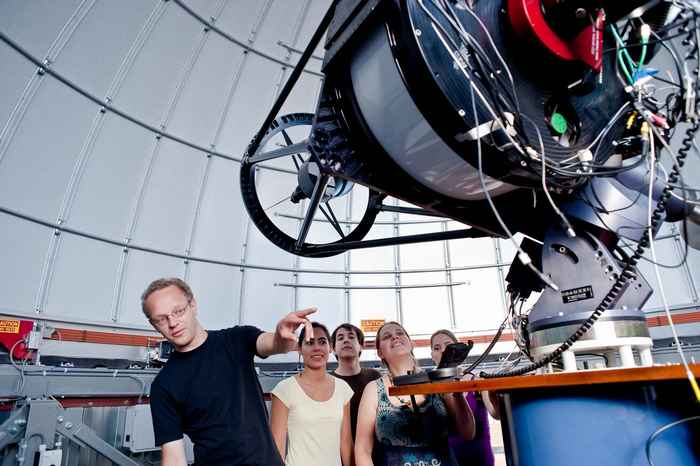Enhancing engagement and collaboration in 1st year Physics and Astronomy course

Stimulating creativity and curiosity
A major shift in the course involves introducing activities that encourage creativity and independent thinking. Students work on tasks such as performing data analysis with new datasets, tweaking experimental setups, and preparing samples in alternative ways. These activities are designed to allow students to explore scientific problems and find solutions in their teams, while sparking curiosity and engagement. Our goal is to produce students who are not only skilled in practical research but also capable of working collaboratively in interdisciplinary environments. This course provides students with an opportunity to try out research areas they are interested in, allowing them already during the first years of the BSc to explore different fields before making decisions about their Bachelor's thesis. By working on diverse projects, students can identify which research areas resonate with their interests and gain valuable insight into the type of research they would like to pursue further.
One of the most significant updates is the integration and streamlining of academic skills training (AVT) with the practical laboratory work. Students will apply the critical thinking, communication, and scientific writing skills learned in AVT sessions directly to their projects. This integration provides a seamless learning experience, equipping students with both technical and academic tools to excel. Teamwork is also a core focus of the redesigned course, with students working in groups of three to four to collaborate on their experiment, distribute workload and communicate their findings. The experience in this course directly leads into the second-year program, where students will work in pairs on a more focused research topic, building on their first-year experiences and further honing their research skills.
Looking ahead
Initial feedback has been positive, with students appreciating the increased sense of ownership and engagement with the research groups. While some challenges remain in balancing workloads across teams, and making assessment strategies uniform, the changes are helping students feel more invested in their projects. Future improvements will continue to refine the course based on student and supervisor feedback. By promoting creativity, curiosity, and ownership, this revamped course sets a new standard for the approach to education at the University of Amsterdam and Vrije Universiteit Amsterdam, and is a first step for students to prepare for success in their future research careers.